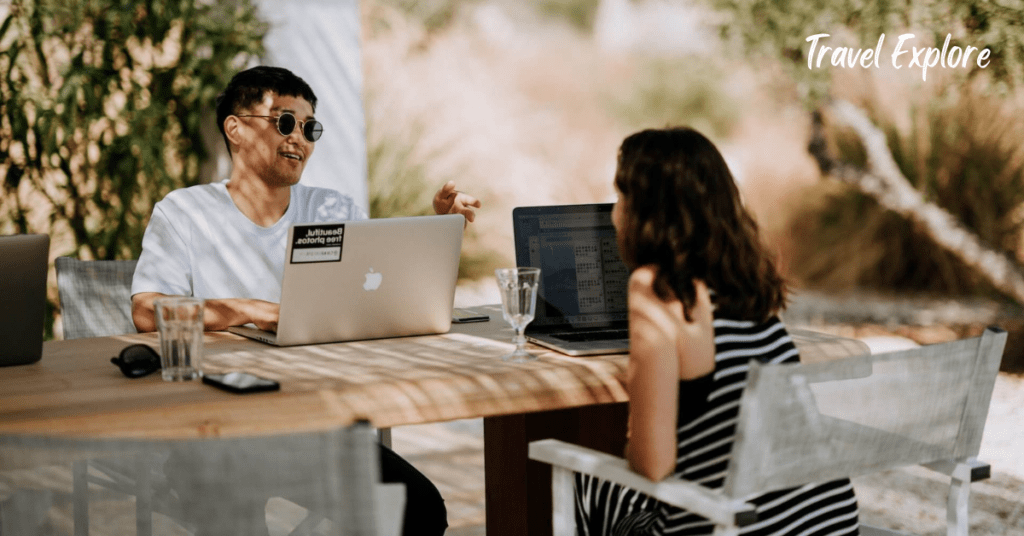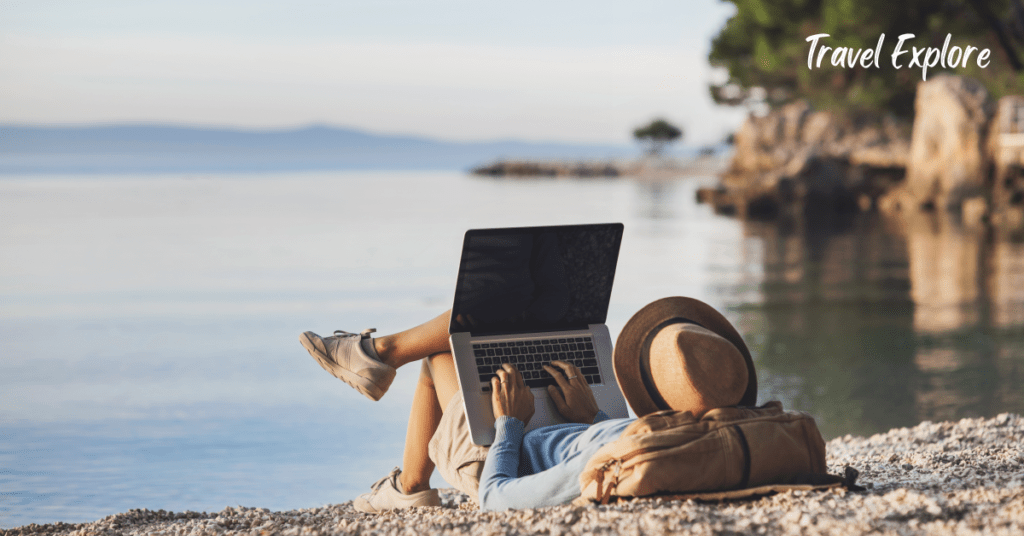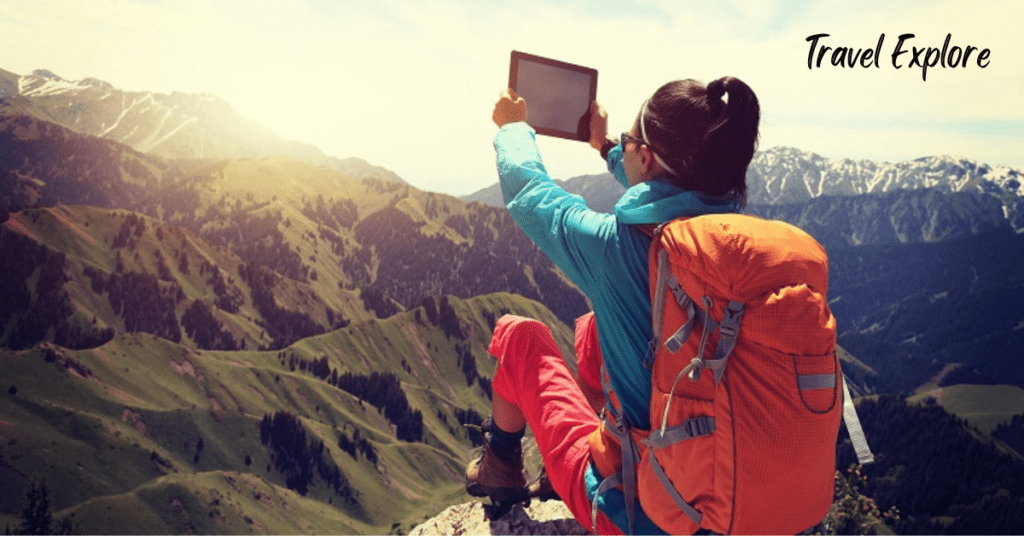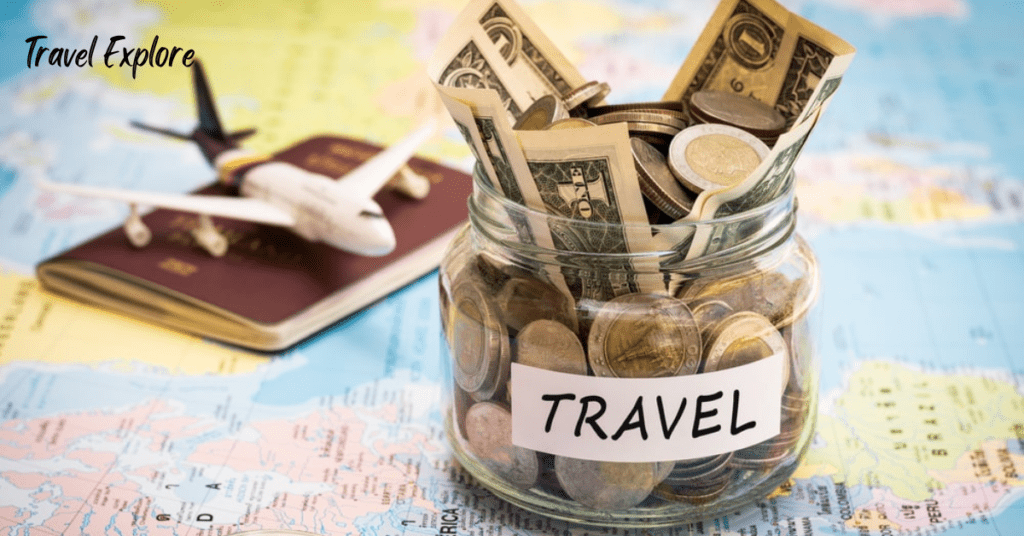How Can I Travel World While Doing My Job?

In today’s interconnected world, the concept of work and travel is no longer just a distant dream for digital nomads. With the rise of remote work opportunities and the increasing accessibility of global travel, it’s entirely possible to traverse the globe while maintaining a fulfilling career. Whether you’re a freelancer, an entrepreneur, or an employee with remote work options, there are numerous strategies you can employ to fulfill your wanderlust while excelling in your professional endeavors.
This comprehensive guide will explore various tactics and tips for seamlessly integrating travel into your work life. From leveraging technology to finding remote work opportunities, we’ll delve into practical advice that can help you achieve the perfect balance between work and exploration. So, if you’ve ever wondered how you can travel the world while still excelling in your job, read on to discover the secrets to becoming a globetrotting professional.
Embracing Remote Work

One of the most significant factors enabling professionals to travel while working is the widespread adoption of remote work arrangements. Remote work offers the flexibility to work from anywhere with an internet connection, making it an ideal option for those with a penchant for travel.
Freelancing

Freelancing offers individuals the freedom to work independently, taking on projects from various clients without the constraints of traditional employment. As a freelancer, you are your own boss, setting your own hours, rates, and project preferences.
This flexibility allows freelancers to tailor their work to their skills and interests, pursuing projects that align with their expertise and passions. Platforms like Upwork, Freelancer, and Fiverr connect freelancers with clients seeking remote talent across a wide range of industries, offering opportunities for collaboration on a global scale.
By establishing a strong reputation and delivering high-quality work, freelancers can build a sustainable business while enjoying the freedom to work from anywhere in the world, making it an attractive option for those looking to travel while pursuing their professional goals.
Negotiate Remote Work Arrangements

Negotiating remote work arrangements involves discussions with your employer to establish a flexible work setup that allows you to perform your job duties from a location of your choosing, typically outside of the traditional office environment. This negotiation process often entails outlining the benefits of remote work, such as increased productivity, improved work-life balance, and reduced overhead costs for the employer.
It may also involve proposing a trial period or outlining a detailed plan for how remote work will be implemented, including communication strategies, project management tools, and performance metrics to ensure accountability and success. By demonstrating your ability to maintain productivity and meet deadlines while working remotely, you can make a compelling case for why remote work arrangements are mutually beneficial for both you and your employer.
Effective negotiation skills, clear communication, and a focus on outcomes are key elements in securing remote work arrangements that enable you to travel while maintaining your professional responsibilities.
Leveraging Technology

In today’s digital age, technology plays a pivotal role in facilitating remote work and travel. From communication tools to project management platforms, leveraging the right technology can enhance your productivity and streamline your work processes while on the go.
Communication Tools
Communication tools are essential resources for remote professionals, facilitating seamless collaboration and connectivity regardless of geographic location. These tools encompass a variety of platforms, including instant messaging applications like Slack, video conferencing software such as Zoom, and project management systems like Asana or Trello.
Through these mediums, remote workers can engage in real-time discussions, share documents, and coordinate projects with colleagues or clients from anywhere with an internet connection. These tools not only enhance productivity but also foster a sense of camaraderie and teamwork among remote teams by enabling efficient communication and the exchange of ideas.
Moreover, they help bridge the gap between remote workers and their counterparts in traditional office settings, ensuring that everyone remains aligned and informed despite physical distance. In essence, communication tools serve as the lifeblood of remote work, empowering professionals to collaborate effectively and stay connected in an increasingly decentralized work landscape.
Time Management Strategies

Managing your time effectively is key to maintaining a healthy work-life balance while traveling. Without a structured routine, it’s easy to succumb to distractions or become overwhelmed by competing priorities.
Create a Schedule

Creating a schedule is paramount for individuals balancing work and travel aspirations, providing structure and organization to their daily routines. A well-designed schedule delineates specific time blocks for work tasks, personal activities, and leisure pursuits, helping individuals optimize their productivity while also allocating sufficient time for relaxation and exploration.
When crafting a schedule, it’s crucial to consider factors such as time zone differences, project deadlines, and preferred working hours to ensure compatibility with both work commitments and travel itineraries. By adhering to a predetermined schedule, individuals can maintain a sense of routine and discipline, mitigating the risk of procrastination or burnout while on the road. Additionally, scheduling allows for better time management, enabling individuals to make the most of their travel experiences without compromising their professional responsibilities.
Whether it’s designating mornings for focused work sessions or setting aside afternoons for sightseeing adventures, a well-structured schedule serves as a roadmap for achieving a harmonious balance between work and travel aspirations.
Set Clear Goals

Setting clear goals is essential for individuals striving to merge their professional pursuits with a passion for travel. These goals serve as guiding principles, providing direction and focus amidst the excitement and unpredictability of global exploration. Clear goals may include specific targets related to work accomplishments, such as completing projects within set timelines, achieving revenue milestones, or expanding one’s professional network while on the road.
Additionally, individuals may establish personal objectives tied to their travel aspirations, such as visiting a certain number of countries, immersing themselves in diverse cultures, or experiencing unique adventures in each destination. By defining these goals upfront, individuals can create a roadmap for their journey, outlining actionable steps and milestones to work towards.
Moreover, clear goals serve as motivational drivers, instilling a sense of purpose and accountability as individuals navigate the intersection of work and travel. Whether it’s striving for career advancement, personal growth, or simply making unforgettable memories along the way, setting clear goals empowers individuals to pursue their dreams with intentionality and resolve.
Financial Planning and Budgeting
Traveling the world while working requires careful financial planning and budgeting to ensure that you can sustain your lifestyle over the long term. From covering living expenses to saving for future adventures.
Create a Budget

Creating a budget is an indispensable aspect of planning for a lifestyle that combines work and travel. This financial roadmap enables individuals to manage their expenses effectively, ensuring they can sustain their desired lifestyle while on the move.
To begin, individuals should assess their income sources, including earnings from remote work, freelancing, investments, or passive income streams. Next, they must outline their anticipated expenses, which may include accommodation costs, transportation expenses, meals, entertainment, healthcare, and savings for future ventures.
It’s crucial to research the cost of living in various destinations and factor in currency exchange rates to accurately estimate expenses. Additionally, individuals should allocate funds for emergencies, unexpected expenses, and contingencies while on the road. Utilizing budgeting tools or apps can streamline this process, allowing for easy tracking and monitoring of income and expenditures in real-time.
Regularly reviewing and adjusting the budget based on changing circumstances or priorities is essential to maintaining financial stability and ensuring long-term sustainability. By adhering to a well-crafted budget, individuals can enjoy the freedom and flexibility to pursue their travel dreams while maintaining fiscal responsibility and peace of mind.
Establish an Emergency Fund

Establishing an emergency fund is a critical component of financial planning for individuals seeking to travel while maintaining stability and security. This fund serves as a financial safety net, providing a cushion to cover unexpected expenses, emergencies, or disruptions while on the road.
To begin, individuals should aim to set aside a portion of their income regularly into a dedicated savings account specifically designated for emergencies. Financial experts typically recommend saving enough to cover at least three to six months’ worth of living expenses, although the exact amount may vary based on individual circumstances and preferences.
This fund should encompass essential expenses such as accommodation, transportation, food, healthcare, and other necessities, ensuring individuals can weather unforeseen challenges without derailing their travel plans or compromising their financial well-being. Additionally, it’s essential to prioritize accessibility and liquidity when choosing where to store the emergency fund, opting for accounts that offer easy withdrawal options and minimal fees.
Regularly reviewing and replenishing the emergency fund as needed ensures ongoing financial resilience and peace of mind while pursuing travel adventures. By proactively establishing an emergency fund, individuals can mitigate financial risks and confidently navigate the uncertainties of travel, knowing they have a reliable financial cushion to fall back on in times of need.
Conclusion & Recap
In conclusion, the prospect of traveling the world while maintaining a successful career is no longer just a dream but a tangible reality for many. By embracing remote work opportunities, leveraging technology, implementing effective time management strategies, and practicing sound financial planning, individuals can achieve a harmonious balance between work and travel aspirations.
Negotiating remote work arrangements with employers, utilizing communication tools to stay connected, creating schedules to optimize productivity, setting clear goals for both work and travel, establishing budgets, and building emergency funds are key steps in this journey.
Remote work has become increasingly prevalent, offering professionals the flexibility to work from anywhere with an internet connection. Technology serves as a crucial enabler, facilitating seamless communication and collaboration across distances. Effective time management ensures that individuals can maintain productivity while still enjoying the freedom to explore new destinations.
Financial planning, including budgeting and establishing emergency funds, provides the necessary stability and security to sustain a travel lifestyle over the long term.
Frequently asked questions (FAQs)
Can I really work remotely from anywhere in the world?
Yes, with the increasing prevalence of remote work opportunities, many professionals now have the flexibility to work from virtually any location with an internet connection. This includes remote locations, different time zones, and even while traveling.
How do I find remote work opportunities in my field?
There are several platforms dedicated to listing remote job opportunities across various industries. Websites like Remote.co, We Work Remotely, and FlexJobs curate job listings from reputable companies offering remote positions.
What types of jobs are suitable for remote work?
A wide range of jobs can be performed remotely, including roles in technology, marketing, writing, customer service, and more. Essentially, any job that can be done online or via computer can potentially be performed remotely.
How do I negotiate remote work arrangements with my employer?
Approach the negotiation process with a clear understanding of the benefits remote work can offer both you and your employer. Highlight factors such as increased productivity, cost savings, and improved work-life balance, and propose a trial period to demonstrate feasibility.
What tools do I need to work remotely?
Essential tools for remote work include communication platforms like Slack or Zoom, project management software such as Asana or Trello, and cloud storage solutions like Google Drive or Dropbox to access files from anywhere.
How can I stay productive while traveling?
Creating a schedule, setting clear goals, and minimizing distractions are key strategies for maintaining productivity while on the road. Establishing a dedicated workspace and adhering to a routine can also help.
Is it possible to travel on a budget while working remotely?
Yes, traveling on a budget is achievable with careful planning and prioritization. Consider factors such as affordable destinations, accommodations like hostels or Airbnb, and utilizing travel rewards programs to save on expenses.
What should I do in case of emergencies while traveling?
It’s essential to establish an emergency fund to cover unexpected expenses or emergencies while traveling. Additionally, having travel insurance can provide further protection and peace of mind in case of unforeseen circumstances.




